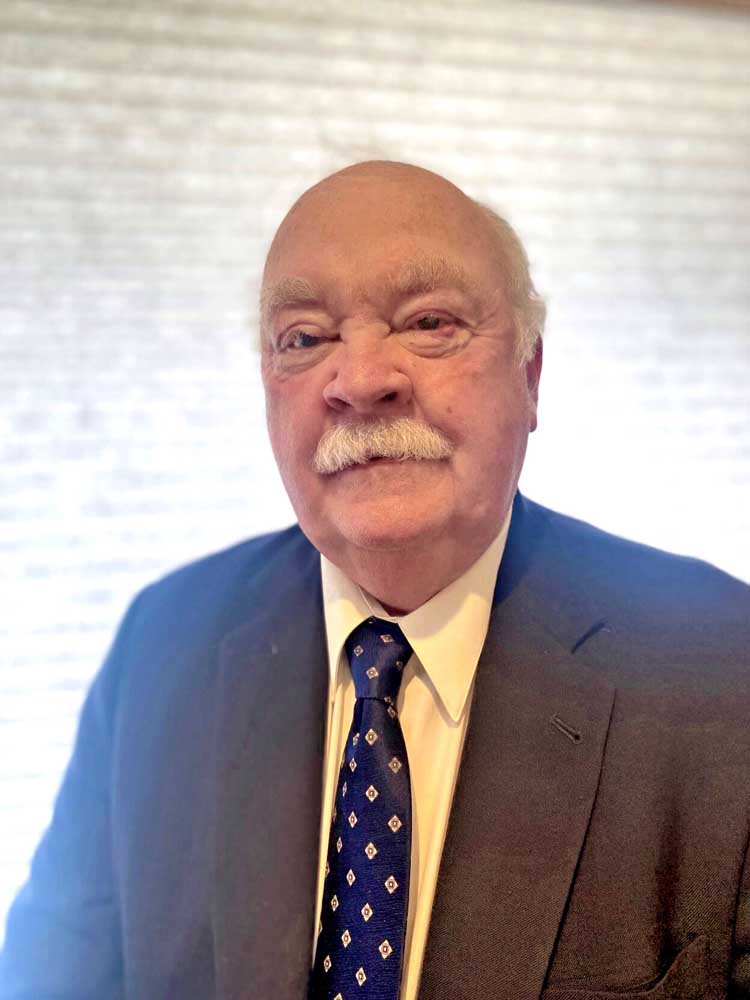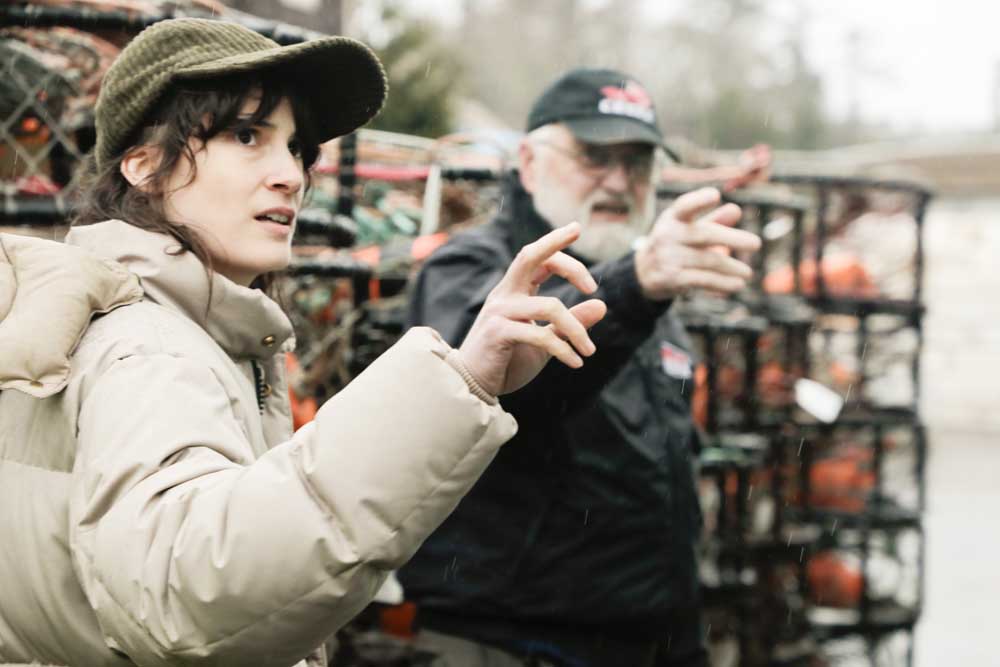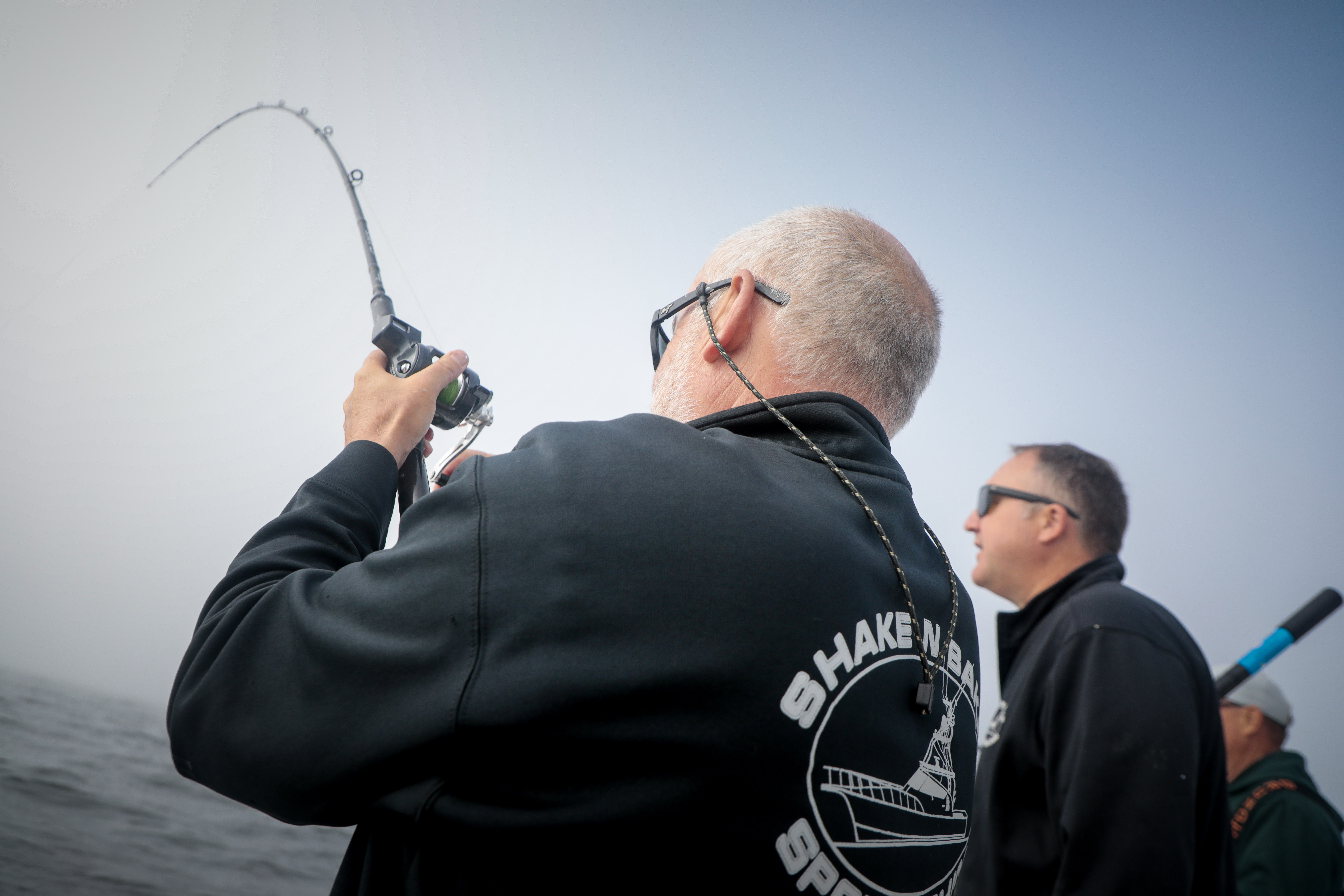2024 General Election Q&A: Incumbent PUD commissioner faces off against challenger
Published 3:05 pm Monday, October 14, 2024

- David McClain
The peninsula-based seat on the Pacific County PUD Board of Commissioners is up for election this November, as an incumbent seeking another six-year term on the board faces off against a challenger hoping to win election in their own right.
Trending
Debbie Oakes, 71, of Long Beach, was first elected to the PUD commission in 2018 and filed for a second term earlier this year. A longtime peninsula resident, Oakes operated a commercial fishing business for more than four decades with her husband, John. She also previously served on the Ocean Beach School District Board of Directors in the 1990s.
David McClain, 74, of Ocean Park, retired to the peninsula with his wife in 2016. Before that, he was a regional executive for EverPower, a company that develops and generates wind energy. McClain has served on the board of several energy nonprofits and trade associations, including Renewable Northwest, American Wind Energy Association and Northwest Independent Power Producers.
Both candidates agreed to participate in a questionnaire with the Observer. Their full written answers, which have been lightly edited for grammar and clarity, can be seen below.
Trending
Chinook Observer: Why are you running to serve on the Pacific County PUD Board of Commissioners, and what makes you qualified?
Debbie Oakes: I strive to make a positive impact in our community by focusing on the key issues facing the PUD, alway keeping our community’s needs in mind. With 47 years of experience in community involvement and small business, I’ve helped maintain stability during economic downturns and the pandemic. Our board has kept rate increases minimal while ensuring reliable services.
I’ve attended over 140 board meetings, representing our community in trade associations and tackling legislation like the Clean Energy Transformation Act (CETA). I currently serve as the board representative for the Washington Public Utility Districts Association (WPUDA) and Northwest Open Access Network (NoaNet). I am also on the board of directors for Energy Northwest.
David McClain: I decided to run for PUD commissioner because there is an alarming problem brewing in the regional power market and it is going to affect PUD’s power supply and electricity price. Increasing demand for electricity is outpacing the regional ability to build and deliver power.
I can bring the experience and perspective needed to guide the PUD through the next decade of major changes to the federal power system. I am a retired executive with over 40 years of experience in power plant development and power integration into regional power grid infrastructures, including working with Bonneville Power Administration (BPA) on power flow integration and interconnection. I have built both overhead and underground transmission lines.
Observer: What is one critical issue facing the PUD, and how, as one of three commissioners, do you plan on addressing it if elected?
Oakes: This is a unique period in time when there is no single issue. A few of the issues in electricity are: transmission, government requirements and restrictions, cost, length of time to build and local opposition to new technologies. In broadband, competition for grant money and restrictions on defined areas are obstacles, along with the time it takes to execute work. In water, new and ever-changing government requirements and limited grants have an impact.
I do my homework by talking to leaders outside of our PUD and increase my knowledge by reading articles, attending seminars and classes. Thus, I am prepared to offer facts and work collaboratively with my fellow commissioners to influence decisions.
McClain: Price stability is the most critical issue. The market is changing with a shift toward more renewable energy resources. The demand for power is also increasing because of population growth and greater demand for electrical devices.
The greatest threat to PUD supply and price is the political pressure to breach the Snake River dams while canceling all fossil fuel power. The federal power system depends upon the Snake River dams to meet hourly power load fluctuations. Removing them will have a direct effect on PUD wholesale power prices and power availability.
I will oppose this terrible idea and advocate for improved regional transmission, high-tech metering and reliable generation to meet the future energy market and provide economic power to the customers of Pacific County PUD.
Observer: How can the commissioners best ensure that the PUD is able to continue providing low rates to customers?
Oakes: Pacific PUD does not generate its own power. We purchase power from BPA. Our contract with BPA guarantees that we receive power at a wholesale rate first, and at the cheapest rate. This power is clean, renewable, cost-effective and carbon-free energy that meets state and federal clean energy standards. BPA’s energy portfolio consists of dams, solar, wind and nuclear.
We collaborate with other utilities in six states to influence the rates, transmission and power sources that BPA offers to its customers. Because we rely on BPA for our power purchases, we are very involved with regional discussions involving BPA rate cases, markets, grid reliability and resource adequacy. The management and board regularly attend meetings with organizations that are engaged in regional dialogue and national issues and in all aspects of electricity.
McClain: We are dependent upon BPA for 70% of our power supply. We have a slice of the federal power supply, and we won’t get more in the future. We need to be engaged in regional dialogue on power supply with our partners in Energy Northwest and other regional organizations to shift the cost of regional power expansion to the major utilities along the I-5 corridor, who are spiking the demand for new power. We need to make sure those utilities with high growth cover the cost of delivering that power.
The PUD needs to continue to work with Energy Northwest to provide an additional supply of power to meet the PUD’s future needs above our allocation from BPA of federal hydropower. Energy Northwest is a joint operating agency involving 28 public utility districts and municipalities across Washington. The PUD’s involvement in Energy Northwest allows the PUD to take advantage of economies of scale and risk sharing. Currently, the PUD owns a slice of Condon, Klondike and Stateline wind projects through its relationship with Energy Northwest.
Observer: What role should wind — either on or offshore — and other renewable energy sources play in Pacific County’s short- and long-term energy future?
Oakes: As stated above, the energy we receive from BPA contains solar and wind.
In the past, our PUD tried to build a wind farm on Radar Ridge. Due to the cost we had to form a consortium with other counties to do this. The project was never started due to the endangered species living in the area. Several million dollars was spent and not recovered for this project. Today, it takes an average of 10 years from conception to build wind farms in Washington state. The federal Bureau of Ocean Energy Management just had an auction for offshore wind leases that was not successful and had to be canceled.
When investigating renewable energy sources, the cost of the product is not the only issue to be considered. How it will connect to a transmission source, length of life, cost of replacement, and how and where used parts are disposed of must also be considered. Our utility continues to investigate all emerging technologies like hydrogen, fusion, fission, small modular reactors, batteries, pump storage, thermal and virtual power plants. All options are on the table and we will continue to evaluate them along with solar and wind for our long-term energy future needs.
McClain: Offshore wind is uneconomic and very high risk, and the PUD should avoid it. Onshore wind could be developed in the Dotty Hills of Pacific and Lewis Counties, where over 150 megawatts of potential generation could be developed. I know this because I studied this resource in partnership with Weyerhaeuser. I would support further development of west side wind resources.
The PUD should also participate with Energy Northwest on future wind and research into small nuclear power plants. Great advances in technology are being achieved in modular nuclear plants. The PUD’s relationship with Energy Northwest is its greatest asset for the future supply.
Observer: What more can the PUD do to help expand access to reliable, high-speed broadband countywide?
Oakes: Last year, our IT department led the local Broadband Action Team (including the EDC, port and municipalities) through an arduous process of Broadband Equity, Access & Deployment (BEAD) to be able to qualify for federal funds for broadband expansion. Thus, Washington state was awarded $1.23 billion from the federal government, a once-in-a-generation opportunity to fund massive buildouts by telecom organizations, ports, public/private partnerships and public utility districts. We are currently preparing to apply for grants as soon as the application process opens up later this year.
Currently, we are working on the installation of fiber optic cable in the Bay Center area of the county. We received a $5 million grant from the Washington State Public Works Board to do this. We also won an FCC auction for the airwaves for the majority of Pacific County. Because we now own these airwaves they can be used to provide internet service to areas that are not accessible to fiber.
We are one of the owners of NoaNet, a nonprofit telecommunications organization that operates as a public benefit entity to enhance broadband and telecom services in Washington state. They help us in identifying the most efficient and cost-effective opportunities to improve broadband in our county.
McClain: The PUD’s high-speed broadband network was designed for the communication, monitoring and control of the PUD electric system. The PUD also provides wholesale telecommunication to retail Internet Service Providers that, in turn, use the PUD’s fiber network to offer broadband services.
The PUD has been focusing on building fiber out in areas that have no other wireline options. But the costs are high. The recent extension to Lynn Point, Bay Center and Nemah is being constructed utilizing a $5 million grant fund to extend service to 375 users. This is a cost of approximately $13,300 per user.
There are options that may be lower cost than expanding the PUD fiber system involving Starlink satellite communications. Starlink costs $600 to install and $150 per month. The PUD should explore that option to provide economic service to remote areas similar to rebates provided for new windows, water heaters and insulation. I have a Starlink system at my office and Comcast at my home. Both systems are excellent, but Starlink has a lower monthly cost.
Observer: Why should voters elect you to serve as a PUD commissioner?
Oakes: I want to be involved in continuing to develop solutions for the issues Pacific PUD is facing in the areas of electricity, telecommunications, water, cybersecurity, workforce development and finance. In order to achieve my goal I have spent the last six years learning and being an advocate for improvement in these areas.
The utility industry is currently facing unprecedented challenges that impact our customers’ power supply and rates. I aim to foster greater customer engagement by seeking input on our long-term strategic direction for the next 20 years. Additionally, I want to educate our customers on relevant utility topics. I will continue to collaborate with the board in enhancing community engagement through regular newsletters, press releases, forums and advisory boards.
I would appreciate your vote.
McClain: I will bring technical and business knowledge about transmission systems and regional power supply that is missing from the current board. The PUD board should have at least one member who has experience with the nuts and bolts of transmission system construction and maintenance. I have extensive experience in the development of renewable power and regional power supply issues. I will also be the only board member who has actually built transmission lines.









